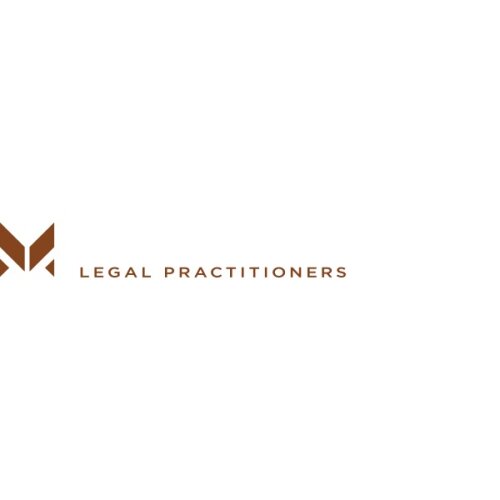Best Financial Services Regulation Lawyers in Lusaka
Share your needs with us, get contacted by law firms.
Free. Takes 2 min.
List of the best lawyers in Lusaka, Zambia
About Financial Services Regulation Law in Lusaka, Zambia
Financial Services Regulation in Lusaka, Zambia, is an evolving field aimed at maintaining a stable and fair financial system. Regulations are overseen by the Bank of Zambia and the Securities and Exchange Commission, among others. These regulatory bodies ensure that financial institutions comply with local laws, provide consumer protection, and promote confidence in the financial system. The regulatory framework covers a variety of financial entities, including banks, insurance companies, pension funds, and capital markets.
Why You May Need a Lawyer
There are several situations where individuals or businesses may seek legal help in Financial Services Regulation. These include issues such as compliance with regulatory requirements, dealing with disputes with financial institutions, launching a new financial service, due diligence in mergers and acquisitions within the financial sector, or seeking clarification on complex financial regulations. Legal advice can also be crucial in navigating licensing requirements or defending against regulatory actions.
Local Laws Overview
Key aspects of local laws relevant to Financial Services Regulation in Lusaka include:
- The Banking and Financial Services Act: Governs the licensing and regulation of banks and other financial service providers.
- The Securities Act: Regulates the securities markets and is enforced by the Securities and Exchange Commission.
- The Insurance Act: Oversees the functioning of insurance companies to ensure they operate safely and soundly.
- The Pensions Scheme Regulation Act: Manages the regulation and supervision of pension schemes.
- Anti-Money Laundering Laws: Aim to prevent financial crimes and ensure financial entities engage in best practices to detect suspicious activities.
Frequently Asked Questions
1. What is the role of the Bank of Zambia in financial regulation?
The Bank of Zambia is the central bank responsible for overseeing the financial system, issuing licenses to financial service providers, and ensuring monetary stability.
2. Do I need a license to start a financial services business in Lusaka?
Yes, individuals or entities intending to operate as a financial service provider need to obtain a license from the relevant regulatory body such as the Bank of Zambia or Securities and Exchange Commission.
3. How can I report a financial fraud in Zambia?
Financial fraud can be reported to the Financial Intelligence Centre or the Bank of Zambia, which will investigate and take appropriate actions.
4. Are there specific regulations for fintech companies in Zambia?
Yes, fintech companies must comply with existing financial regulations, and recent regulatory reforms have been introduced to address emerging fintech trends and promote innovation while ensuring consumer protection.
5. What consumer protections are available in financial services in Zambia?
Consumer protections include the requirement for transparency in financial products, fair treatment of customers, and a mechanism for handling complaints through the Consumer Protection Act and respective regulatory bodies.
6. How are insurance companies regulated in Zambia?
Insurance companies are regulated under the Insurance Act, which requires them to comply with financial soundness requirements, consumer protection laws, and fair practice standards.
7. What is the process for appealing a decision made by a financial regulatory body?
Decisions by regulatory bodies can be appealed through administrative reviews within the regulatory framework or challenged in the Zambian courts.
8. How do capital markets operate under Zambian law?
Capital markets in Zambia are regulated by the Securities Act, which governs the issuance and trading of securities and provides a framework for securities exchanges and collective investment schemes.
9. What are the penalties for non-compliance with financial regulations?
Penalties can include fines, revocation of licenses, and in severe cases, criminal charges. Regulatory bodies monitor compliance and enforce penalties to maintain market integrity.
10. Can foreign entities provide financial services in Zambia?
Yes, however, foreign entities must comply with local regulations, including obtaining the necessary licenses and adhering to Zambian laws governing foreign investment.
Additional Resources
For more help with financial services regulation, consider contacting the following organizations:
- Bank of Zambia: Primary financial regulator to contact for banking-related inquiries and licenses.
- Securities and Exchange Commission of Zambia: Governs securities and capital markets.
- Financial Intelligence Centre: Focuses on anti-money laundering and financial crime investigations.
- Consumer Protection Commission: Provides advice and assistance on consumer rights in financial transactions.
Next Steps
If you need legal assistance in financial services regulation, it is advisable to contact a lawyer specialized in this area. Begin by researching law firms with expertise in financial services regulation or those that have experience dealing with cases involving the Bank of Zambia or the Securities and Exchange Commission. It is also beneficial to prepare an overview of your issue to discuss with a legal expert, ensuring they fully understand your situation. Confidential consultations can often clarify your rights and obligations under Zambian law and help you develop a strategic plan moving forward.
Lawzana helps you find the best lawyers and law firms in Lusaka through a curated and pre-screened list of qualified legal professionals. Our platform offers rankings and detailed profiles of attorneys and law firms, allowing you to compare based on practice areas, including Financial Services Regulation, experience, and client feedback.
Each profile includes a description of the firm's areas of practice, client reviews, team members and partners, year of establishment, spoken languages, office locations, contact information, social media presence, and any published articles or resources. Most firms on our platform speak English and are experienced in both local and international legal matters.
Get a quote from top-rated law firms in Lusaka, Zambia — quickly, securely, and without unnecessary hassle.
Disclaimer:
The information provided on this page is for general informational purposes only and does not constitute legal advice. While we strive to ensure the accuracy and relevance of the content, legal information may change over time, and interpretations of the law can vary. You should always consult with a qualified legal professional for advice specific to your situation.
We disclaim all liability for actions taken or not taken based on the content of this page. If you believe any information is incorrect or outdated, please contact us, and we will review and update it where appropriate.

















